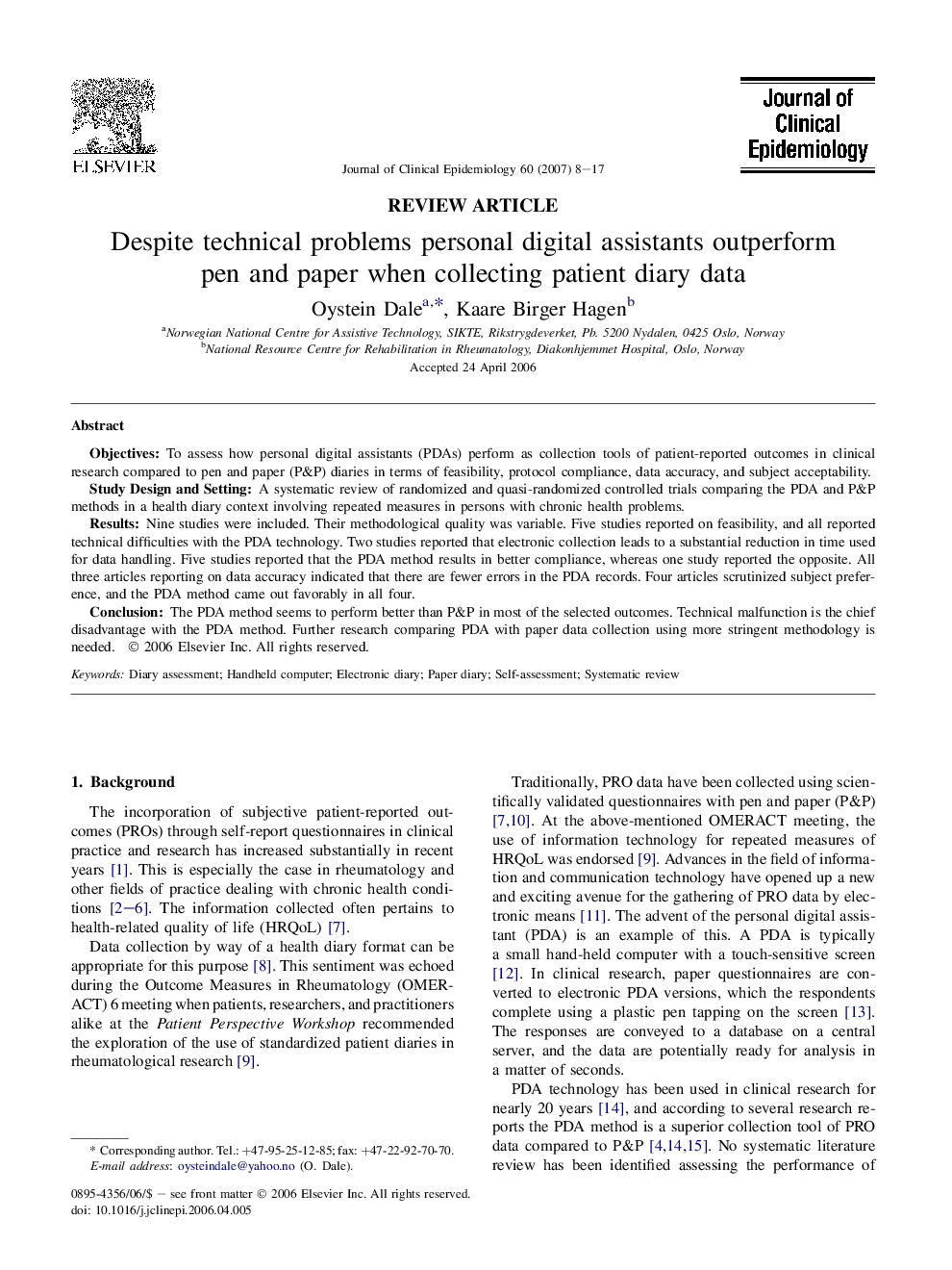| Article ID | Journal | Published Year | Pages | File Type |
|---|---|---|---|---|
| 1083540 | Journal of Clinical Epidemiology | 2007 | 10 Pages |
ObjectivesTo assess how personal digital assistants (PDAs) perform as collection tools of patient-reported outcomes in clinical research compared to pen and paper (P&P) diaries in terms of feasibility, protocol compliance, data accuracy, and subject acceptability.Study Design and SettingA systematic review of randomized and quasi-randomized controlled trials comparing the PDA and P&P methods in a health diary context involving repeated measures in persons with chronic health problems.ResultsNine studies were included. Their methodological quality was variable. Five studies reported on feasibility, and all reported technical difficulties with the PDA technology. Two studies reported that electronic collection leads to a substantial reduction in time used for data handling. Five studies reported that the PDA method results in better compliance, whereas one study reported the opposite. All three articles reporting on data accuracy indicated that there are fewer errors in the PDA records. Four articles scrutinized subject preference, and the PDA method came out favorably in all four.ConclusionThe PDA method seems to perform better than P&P in most of the selected outcomes. Technical malfunction is the chief disadvantage with the PDA method. Further research comparing PDA with paper data collection using more stringent methodology is needed.
